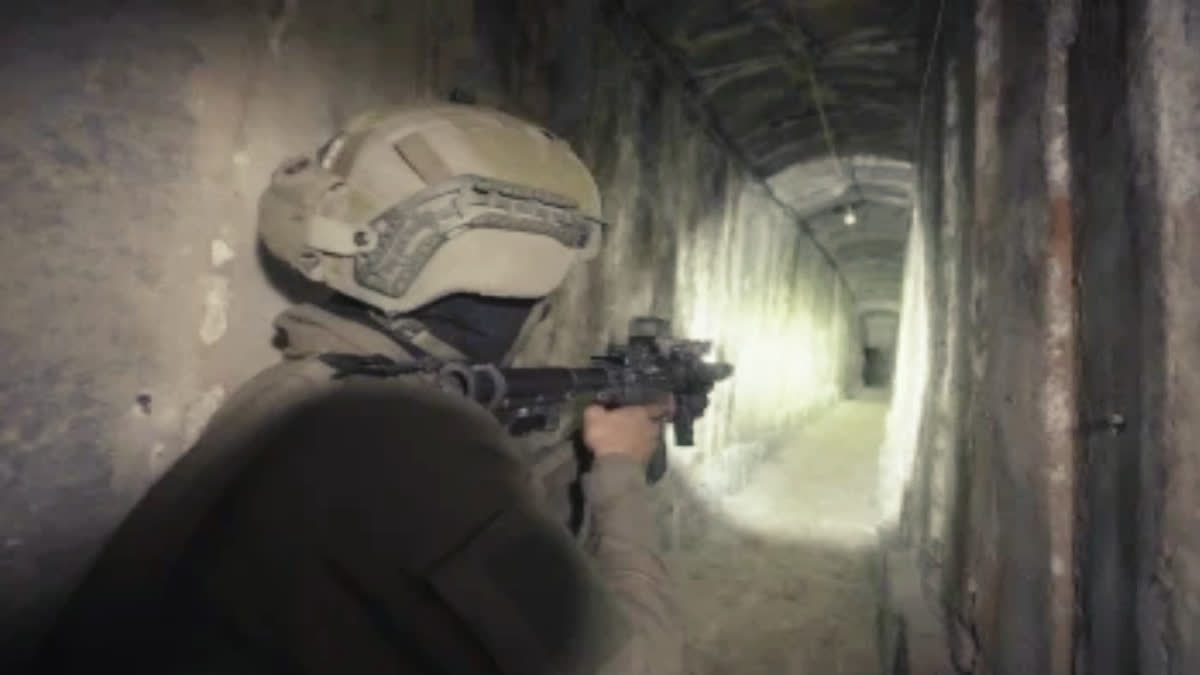New Delhi: Despite the ceasefire in the Israel-Hamas war being extended by two days on Tuesday, there still stands the chance of the Palestinian militant group being a source of headache for the Jewish nation.
Since the ceasefire came into effect on Friday, Israel has released 150 Palestinian prisoners lodged in its jails in three batches till the time of filing of this report. On its part, Hamas has released 69 women and children it has been holding captive in Gaza since the war broke out on October 7. These include 51 Israelis and 18 foreign nationals. Hamas has now reportedly released a fresh list of hostages to be released during the ceasefire extension.
The ceasefire has also allowed the flow of humanitarian aid from Egypt to Gaza, the narrow strip of land on the east coast of the Mediterranean Sea, which forms one of the two Palestinian territories, the other being the West Bank. Since the ceasefire began, the UN has been able to increase the delivery of food, medicine and water to the largest volume after humanitarian aid into Gaza was allowed on October 21.
The current ceasefire extension has been possible due to the efforts of lead negotiator Qatar, and the US and Egypt. According to reports, between Israel and Hamas, the former has been the toughest negotiator so far. So who holds the upper hand at this stage of the war and ceasefire that has claimed over 15,000 lives in Gaza and over 1,200 in Israel so far?
According to S Samuel C Rajiv, Associate Fellow in the Manohar Parrikar Institute of Defence Studies and Analyses, whose area of interest is the Israel-Palestine issue, the Jewish nation holds the upper hand as it has been able to wipe out Hamas from half of Gaza. Hamas has been the de facto ruler of Gaza ever since the elections for the Palestinian Authority were held in 2006. After north Gaza was wiped out by the Israeli Defence Forces (IDF), around two million civilians are now squeezed into south Gaza and Hamas is now within that population.
“But, as long as Hamas has Israeli hostages in Gaza, it does have the leverage,” Rajiv said. “Efforts will continue to further extend the ceasefire. Though Hamas has Israeli hostages, Israel too has Palestinian prisoners in its jails.”
He further pointed out that the war aim of Israel remains – the total destruction of Hamas. Israeli Prime Minister Benjamin Netanyahu will spare no efforts to attain that. But what will be a matter of concern for all is that, following the release of the Palestinian prisoners, Hamas is gaining in popularity in the West Bank which is under the control of the other Palestinian entity Fatah, which is seen as legitimate by the international community.
According to reports, there have been celebrations all over the West Bank since the release of the Palestinian prisoners began during the ongoing ceasefire with people draping themselves with the green flag of Hamas. “They say Hamas are terrorists, but we are all Hamas,” France 24 cited a celebrating crowd of Palestinians as chanting.
Hamas is an Islamist group that advocates armed resistance and has been involved in acts of violence against Israel's 'illegal occupation'. It rejects any alternative to the full and complete liberation of Palestine. On the other hand, Fatah is a secular nationalist organization that has historically favoured negotiations with Israel to achieve a Palestinian state. It believes in the two-state solution.
Fatah, formerly the Palestinian National Liberation Movement, is a Palestinian nationalist and social democratic political party. It is the largest faction of the confederated multi-party Palestine Liberation Organization (PLO) and the second-largest party in the Palestinian Legislative Council (PLC). Mahmoud Abbas, the President of the Palestinian Authority, is the chairman of Fatah.
Hamas was founded in 1987, soon after the First Intifada (Palestinian uprising) broke out, as an offshoot of the Egyptian Muslim Brotherhood. It is a Palestinian Sunni-Islamist fundamentalist organisation, which is regarded, either in whole or in part, as a terrorist organisation by several countries and international organisations, most notably by Israel, the US and the European Union.
Tensions between Fatah and Hamas began to rise in 2005 after the death of PLO founder Yasser Arafat in November 2004. After the legislative election on January 25, 2006, which resulted in a Hamas victory, relations were marked by sporadic factional fighting. This became more intense after the two parties repeatedly failed to reach a deal to share government power, escalating in June 2007 and resulting in Hamas’ takeover of Gaza. Prior to that, in 2005, then-Israeli Prime Minister Ariel Sharon had controversially expelled 9,480 Jewish settlers from 21 settlements in Gaza and four settlements in the northern West Bank.
Now, while Fatah heads the Palestine Authority in the West Bank that is recognised internationally, Hamas is the de facto ruler of Gaza. Even in the West Bank, Hamas has got appeal among some sections of the people because of Fatah’s failure to deliver on issues like the Oslo Accords, the Al Aqsa mosque in Jerusalem and Jewish settlements in the West Bank.
That is why the latest rise in popularity of Hamas in the West Bank will be a cause of concern for many. “If Hamas gets further legitimacy in the West Bank, that will be an even greater headache for Israel and the Palestine Authority,” Rajiv said. So, what are the chances of the ceasefire getting further extended after the next two days? “We will have to wait and watch for the next 48 hours,” he said.
Also read:



